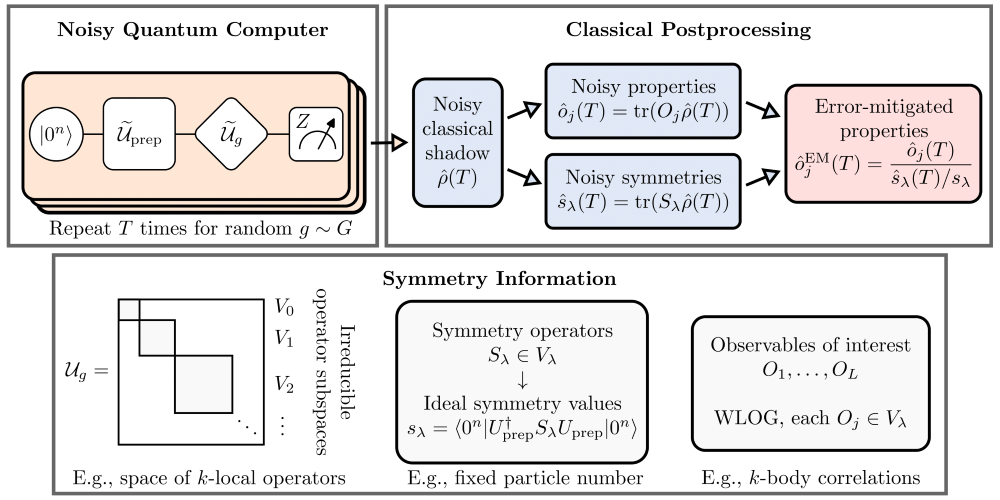Group-theoretic error mitigation enabled by classical shadows and symmetries
October 13, 2023 - Andrew Zhao and Akimasa Miyake

Andrew Zhao and Akimasa Miyake have published a paper to the arXiv preprint server which introduces a technique for reducing the impact of errors in noisy, near-term quantum computers. Quantum computers are anticipated to tackle hard computational problems out of reach by conventional classical computers, such as the simulation of complex physical and chemical systems.
However, currently available machines are subject to non-negligible error rates, making their raw calculations unreliable. Until substantial hardware advances are made, the contemporary approach to handle this challenge is known as quantum error mitigation (QEM), which reduces the effective error rate at the algorithmic level rather than directly at the physical hardware level.
In their paper, Zhao and Miyake propose such a QEM technique, called "symmetry-adjusted classical shadows" (SACS). Their method utilizes symmetries in the quantum system being simulated by the noisy quantum computer. Symmetry is a ubiquitous feature of Nature; a typical example in chemistry is the conserved number of electrons. When noise distorts the quantum system, the prior knowledge of the symmetry can be used to infer how to mitigate the errors that occurred in the computer. In conjunction with a technique known as classical shadows, which very efficiently extracts information from the quantum computer, the authors develop their SACS technique.
As such, the method enjoys both the efficiency of classical shadows and significantly reduced overall errors, while requiring relatively few additional resources. These theoretical features are validated with numerical experiments, demonstrating the expected performance of SACS for simulations of electronic and magnetic materials on currently available noisy quantum machines. They find that, without using any additional quantum-computational resources, SACS can already reduce the effective errors by around 70% on average.
See the publication: https://arxiv.org/abs/2310.03071
